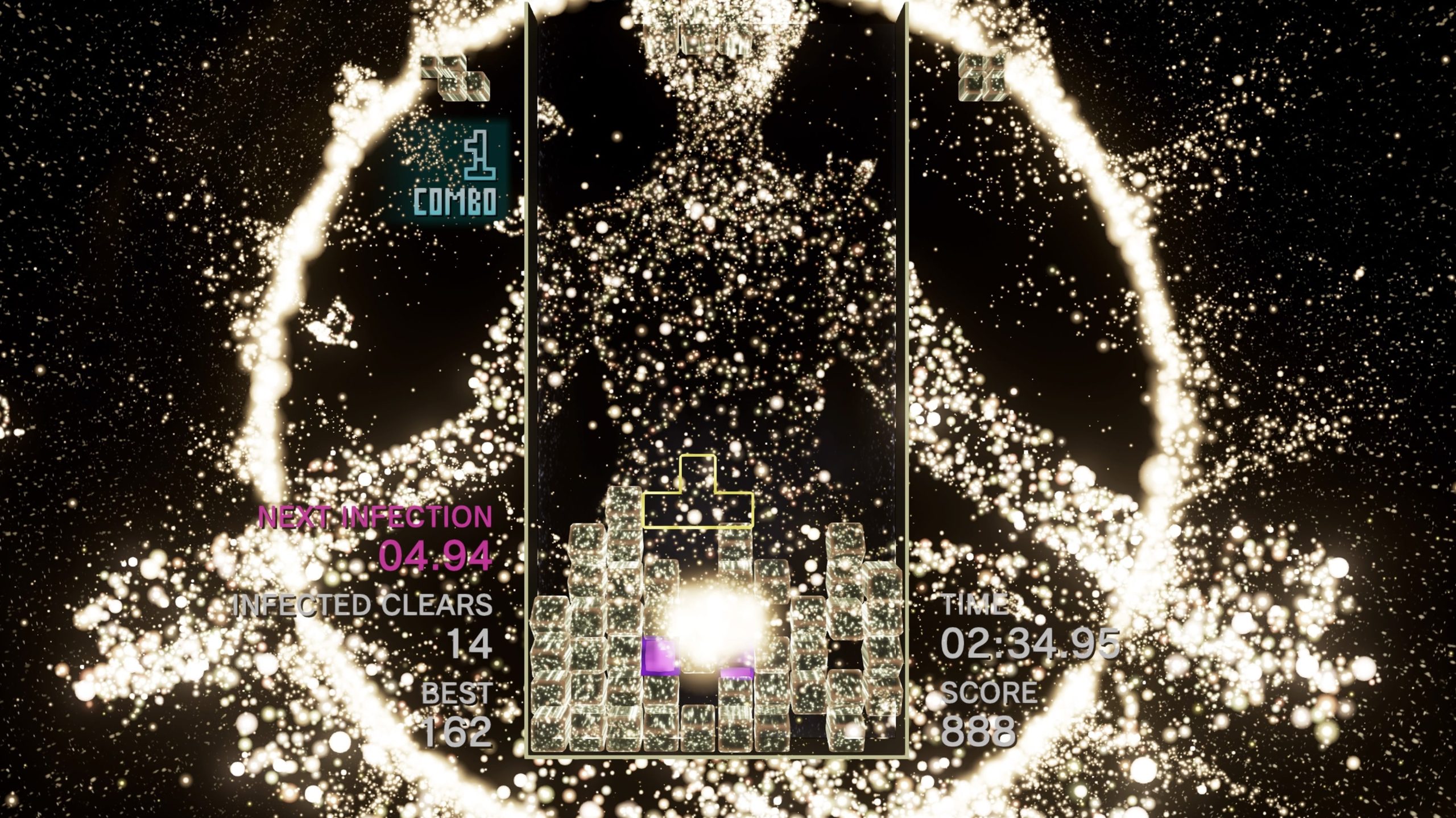Timeless, immediately compelling and utterly without mercy, Tetris has always been a game about what isn’t there – or rather a game about what isn’t there yet. It’s a game about the puzzle pieces you don’t currently have, and all the stupid stuff you get up to before they arrive. Tetris – the way I play it anyway, forever awaiting that long block – is the story of how you got so hopelessly drunk to fight off pre-party nerves that, once the actual party had started, you had to go home early – and on the way home you fell down an open manhole and broke your ankle.
Tetris Effect
- Developer: Enhance, Monstars, Resonair
- Publisher: Enhance
- Platform: Reviewed on PS4 and with PSVR
- Availability: Out 9th November on PS4
To put it another way, Tetris, like Hokusai’s wave and the FedEx logo, is sort of a secret primer in the power of negative space: over the last 30 years of playing Tetris I have come to recognise the shapes I need to build, and understand that these shapes are, in fact, merely the inverse forms of the pieces I am desperate to receive from the drunken Tetris lords who hang out at the top of the eternal well.
Testify! Now Tetris Effect is here, and as the name suggests it’s a game of Tetris that is simultaneously a game about Tetris. It’s a deep rumination on Tetris, as well as being a sort of Tetris Variations. It’s also the latest game from producer Tetsuya Mizuguchi, whose previous work includes lovely things like Rez and Lumines in which virtual space becomes light and sound, the two bound together so tightly that they are oddly inseparable. So Tetris Effect throws sound itself into the geometry of gaming’s most stark and fundamental puzzler. Levels slowly stitch themselves into songs and, like a bat watching the swift midnight world around them appearing through the flighty neon shimmers of echolocation, I suddenly see so much more of what normally isn’t there.
For a game that you might suspect would be equally at home with gods or robots behind the controller, what’s so life-affirming about the audiovisual elements of Tetris Effect is how much they highlight the embattled human element. Every action in Tetris Effect has a sound-effect reaction. Every twist of a Tetrimino block, every change of lane, every hard- or soft-drop and every clear. What this means is that I can suddenly hear all the strange things I do when I play. Tetris Effect gives voice to my indecision, my uncertainty. In the end-game, it arpeggiates my horrific abuse of infinite spin. Mizuguchi has made a career of exploring synaesthesia, the merging of senses that aren’t traditionally directly connected in the central nervous system. For people with synaesthesia, days of the week might each hang at their own height above the bed on waking, or numbers might have their own colours. Games like Rez, like Lumines, give non-synaesthesiacs (that word is a punt, and it comes, again, with my apologies) a sense of the contours of this high-altitude state of being.
